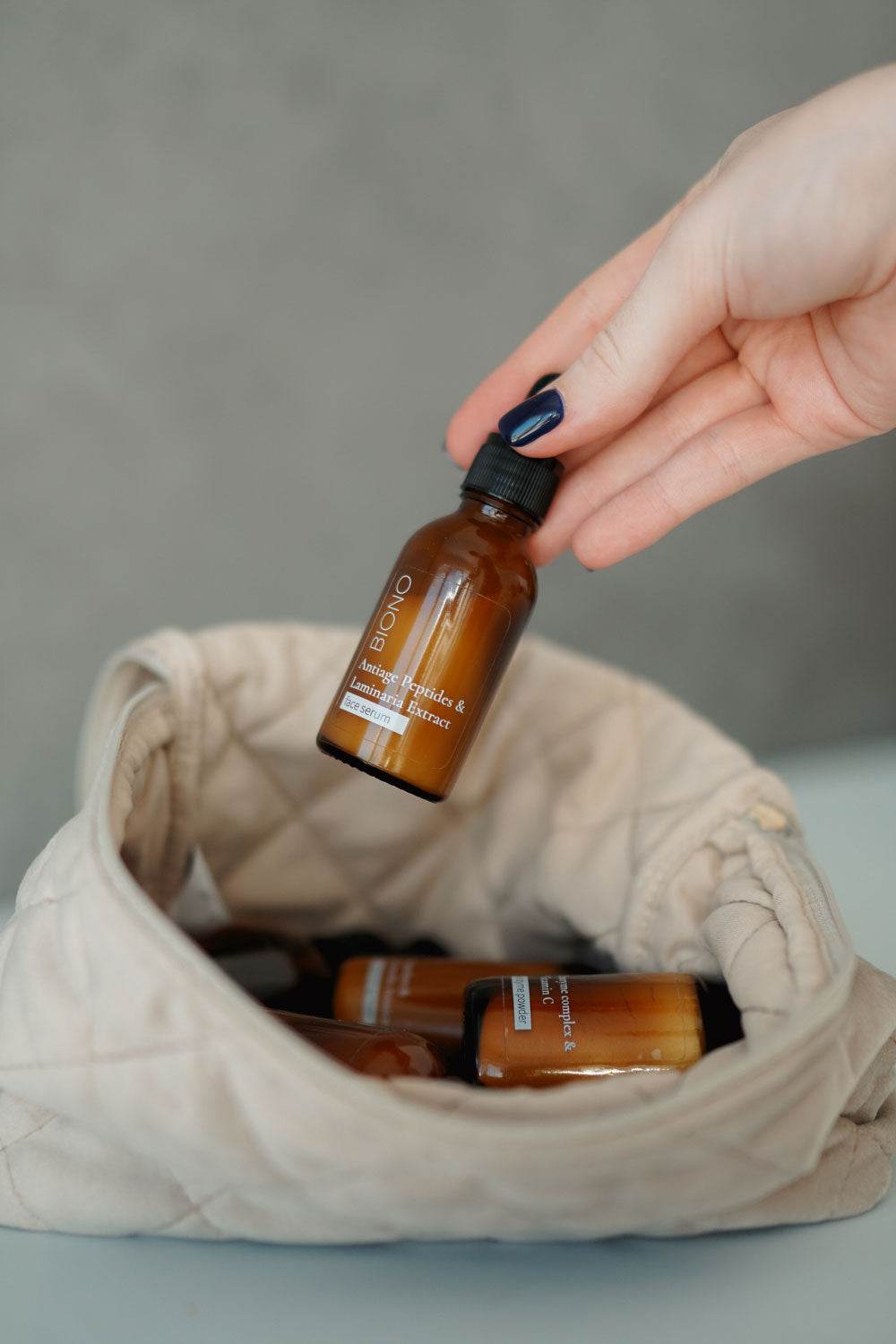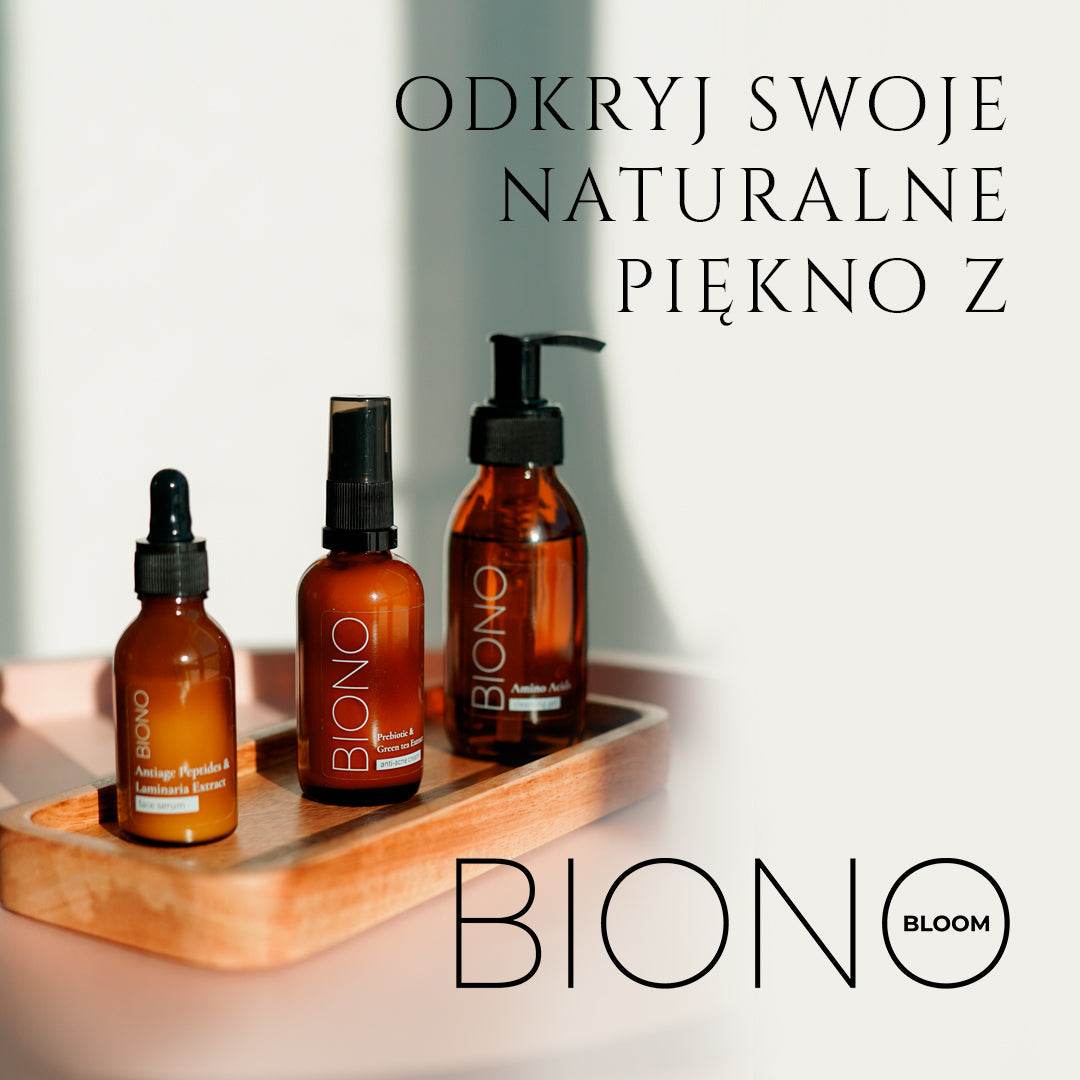
Coconut oil for wrinkles – natural skin support or a myth?
Coconut oil has been incredibly popular in natural skincare for years. Many healthy lifestyle enthusiasts use it as a wrinkle remedy, believing in its rejuvenating properties. But can it truly replace professional anti-aging cosmetics? Let's examine this topic from the perspective of both science and user experience to separate the facts from marketing claims.
Properties of coconut oil in skin care
Coconut oil contains a unique combination of fatty acids, primarily lauric acid, which makes up about 50% of its composition. It also contains vitamin E and antioxidants, which theoretically can support skin health. These natural ingredients allow coconut oil to act as an emollient—a substance that moisturizes and smooths the skin.
A key property of coconut oil is its ability to form an occlusive layer on the skin's surface. This means it creates a thin, semi-permeable barrier that prevents moisture loss from the epidermis. This makes the skin appear smoother, more elastic, and may reduce the appearance of fine lines caused by dehydration.
In practice, coconut oil offers the following benefits:
- Intensive surface hydration thanks to the high content of fatty acids
- The antibacterial action of lauric acid helps protect the skin from infections
- Protection against transepidermal water loss by creating an occlusive barrier
- Relieves irritation and inflammation thanks to its soothing properties
- Providing antioxidants to support protection against free radicals
Does coconut oil actually reduce wrinkles?
The truth is, coconut oil doesn't eliminate existing wrinkles or prevent new ones the way proven active ingredients do. Wrinkles are caused by the degradation of collagen and elastin in the deeper layers of the skin, as well as the long-term effects of gravity, facial expressions, and sun damage. Coconut oil, acting primarily on the surface, has no way of influencing these structural changes.

What coconut oil can do is temporarily improve the appearance of skin through intense hydration. When skin is well-hydrated, fine lines and wrinkles caused by dehydration actually appear less visible. However, this is a cosmetic effect, not a therapeutic one – wrinkles return as soon as the product is discontinued or the skin loses moisture.
Scientific research on coconut oil focuses primarily on its moisturizing and antibacterial properties, not its ability to reduce wrinkles. There are no reliable, controlled clinical trials confirming its effectiveness in combating skin aging. Dermatologists emphasize that while coconut oil can be a pleasant addition to a skincare routine, it should not be considered a standalone anti-wrinkle solution.
How to properly use coconut oil on your face
If you decide to try coconut oil in your skincare routine, it's important to do it properly. Choose unrefined, cold-pressed oil—this retains maximum nutrients. Refined oil is cheaper but lacks many valuable properties and may contain residual chemicals used in the refining process.
Applying coconut oil requires moderation and proper technique. A small amount—about the size of a pea—warmed between your hands and gently massaged into clean skin is sufficient. It's best to use it in the evening, as it has a rather heavy consistency and can leave a greasy film on the skin.
Basic rules for using coconut oil:
- Always apply the oil to clean, dry or slightly damp skin.
- Warm a small amount between your hands to change the consistency.
- Massage in with gentle, circular movements, especially around the eyes and mouth.
- Wait 10-15 minutes for the oil to absorb
- Wipe off any excess with a soft cloth or tissue.
- Use once a day at most, preferably in the evening
- Never apply to wet skin immediately after washing.
What skin types is coconut oil suitable for?
Coconut oil isn't a one-size-fits-all solution for all skin types. On the comedogenic scale—meaning its ability to clog pores—it scores a high 4 out of 5. This makes it problematic for many people, leading to blackheads and breakouts. Those with oily, combination, or acne-prone skin should be especially cautious.
It works best for people with dry, dehydrated skin that isn't prone to breakouts. For this type of skin, coconut oil can be a pleasant, natural moisturizer that soothes tightness and roughness. It can be applied locally—for example, only to the cheeks and eye area, avoiding the T-zone (forehead, nose, chin), where the sebaceous glands are most active.
Coconut oil should be avoided by people with the following skin types:
- Acne-prone skin – high risk of clogged pores and worsening breakouts
- Oily skin – can further burden the skin and lead to excessive shine
- Combination skin – especially in the T-zone, where it can cause blackheads
- Sensitive skin prone to allergic reactions – possible irritations
- Skin with active inflammation – oil can exacerbate the problem
Effective anti-wrinkle ingredients that really work
If you're looking for real wrinkle reduction, it's worth exploring ingredients with scientifically proven effectiveness. Retinoids – derivatives of vitamin A – are the gold standard in anti-aging dermatology. They accelerate cell renewal, stimulate collagen production, and help smooth skin texture. Visible results appear after approximately 12 weeks of regular use.
Vitamin C is another proven ingredient that acts as a powerful antioxidant, neutralizing free radicals. It stimulates collagen synthesis and brightens discolorations, improving the skin's overall appearance. Hyaluronic acid, on the other hand, acts like a water magnet—it can attract and retain moisture up to a thousand times its own weight.
The most effective active ingredients in the fight against wrinkles:
- Retinoids – stimulate cell renewal and collagen synthesis, reduce wrinkles by 30-40%
- Vitamin C – a strong antioxidant, brightens and evens out skin tone, builds collagen
- Hyaluronic acid – intensely moisturizes, fills wrinkles "from the inside"
- Peptides – communicate with cells, signaling the need for regeneration
- Niacinamide – strengthens the protective barrier, reduces discoloration
- SPF filters – the most important preventive measure, prevents 80% of signs of photoaging

Comparison: natural oils vs professional cosmetics
Natural oils, including coconut oil, have their place in skincare as a moisturizing and protective aid. However, they cannot compete with modern cosmetics when it comes to targeted anti-wrinkle action. Professional cosmetics contain precisely composed formulas with active ingredients in appropriate concentrations, tested for effectiveness and safety.
The main difference lies in their mechanism of action. Oils work on the surface, creating a protective barrier and delivering lipids. Professional active ingredients penetrate deeper, influencing cellular processes and skin structure. It's like comparing an umbrella to a fundamental renovation of a building—both are useful, but they serve completely different purposes.
Key differences between natural oils and professional cosmetics:
- Depth of penetration – oils act on the surface, active ingredients reach deeper layers
- Mechanism of action – oils moisturize and protect, active ingredients stimulate regenerative processes
- Proven effectiveness – cosmetics undergo clinical trials, oils are based on tradition
- Precision of action – active ingredients target specific problems, oils work generally
- Formula stability – professional cosmetics ensure optimal stability and penetration of ingredients
- Fast results – active ingredients provide visible results in 8-12 weeks, oils have a cosmetic effect
Alternatives to coconut oil for mature skin care
If you're looking for natural alternatives to coconut oil that are safer for different skin types, you have many options. Argan oil is rich in vitamin E and essential fatty acids, while also being non-comedogenic. It moisturizes perfectly without clogging pores and is great even for combination skin.
Squalane is a naturally occurring ingredient in our skin that decreases in quantity as we age. Squalane oil is incredibly light, absorbs quickly, and perfectly mimics the skin's natural lipids. It has zero comedogenicity, making it an ideal choice for all skin types, including oily and acne-prone skin.
Best alternative oils for mature skin:
- Squalane oil – zero comedogenicity, light texture, imitates natural skin lipids
- Argan oil – rich in vitamin E, moderately comedogenic, universal for most skin types
- Grape seed oil – light, quickly absorbed, rich in antioxidants
- Jojoba oil – closest to natural sebum, balances sebum secretion
- Rosehip oil – high concentration of vitamin C, regenerates and brightens scars
- Raspberry seed oil – a strong antioxidant, natural SPF filter
A comprehensive approach to wrinkle reduction
A true fight against wrinkles requires more than just local care, but a comprehensive approach that considers many aspects. Lifestyle has a huge impact on the rate of skin aging. Sleep is the time when skin regenerates – sleep deprivation leads to premature aging, a loss of skin tone, and a loss of firmness. Ideally, 7-8 hours of quality sleep per night is recommended.
Hydration is just as important as external hydration. Drink at least 1.5-2 liters of pure water daily – a dehydrated body can't maintain proper skin hydration, no matter how many creams you use. A diet rich in antioxidants (fresh fruits, vegetables, nuts) supports the skin from the inside by neutralizing harmful free radicals.
The most important factors influencing the rate of skin aging:
- Diet – antioxidants from berries, green vegetables and nuts protect cells
- Hydration – minimum 1.5-2 liters of water per day for optimal hydration
- Sleep – 7-8 hours is the time for intensive skin regeneration
- Stress – chronic stress accelerates aging through cortisol
- Physical activity – improves circulation and oxygenation of the skin
- Avoiding tobacco – smoking dramatically accelerates the aging process
- Limiting alcohol – it dehydrates and burdens the liver, which affects the skin
- Sun protection – daily SPF prevents 80% of signs of photoaging
When is it worth consulting a specialist?
If wrinkles are a serious aesthetic concern for you, it's worth scheduling a consultation with a dermatologist or cosmetologist. A specialist will assess your skin's condition and needs, and propose solutions tailored to your individual needs. This can include professional home care, but also in-office treatments, which significantly accelerate results.
Professional treatments offer results you can't achieve at home. Highly concentrated acid peels deeply cleanse and renew the skin, needle mesotherapy delivers active ingredients directly to the deeper layers, and microneedling stimulates collagen production through controlled micro-injuries. Fractional lasers remodel the deep layers of the skin.
Signs that it's time to see a specialist:
- Deep wrinkles that don't respond to home care
- A sudden increase in the number of wrinkles in a short period of time
- Loss of skin firmness and elasticity despite regular care
- Discoloration and uneven skin tone
- Enlarged pores and uneven texture
- Persistent inflammation or unusual skin lesions
- The desire to introduce stronger active ingredients on prescription
- Planning intensive treatment before an important event
Summary: Realistic Expectations for Coconut Oil
Coconut oil is a natural ingredient that can be a pleasant addition to skincare routines for those with dry, non-blemish-prone skin. It acts as a surface emollient and can temporarily improve the appearance of fine lines caused by dehydration. However, it shouldn't be considered a miracle anti-aging agent – its benefits are limited to supporting hydration and protecting the skin's lipid barrier.
For real wrinkle reduction, proven active ingredients supported by scientific research are essential: retinoids, vitamin C, hyaluronic acid, peptides, and, above all, daily SPF protection. Coconut oil can be part of a holistic skincare approach, but it shouldn't be the foundation. The best results come from combining professional cosmetics with carefully selected natural ingredients, a healthy lifestyle, and regular protection from external factors. Make informed skincare decisions based on facts, not marketing promises.






